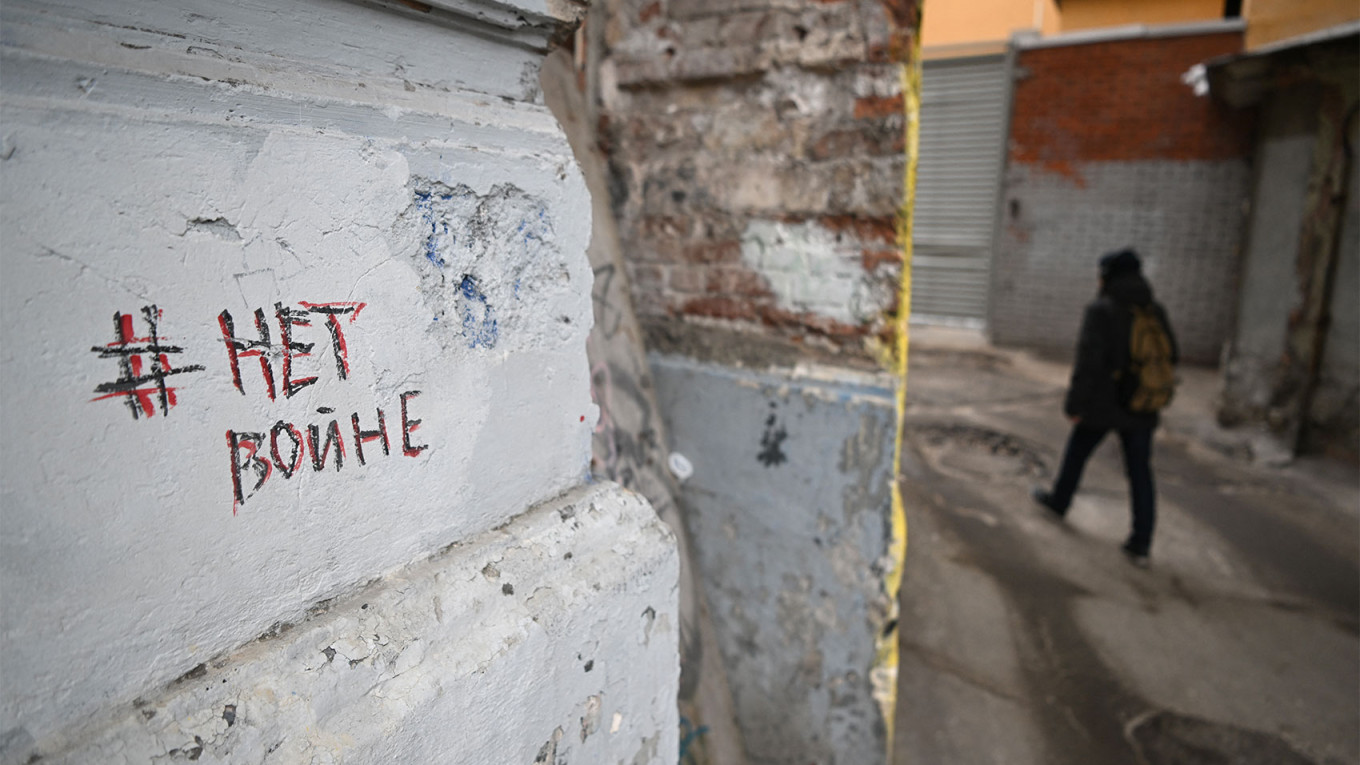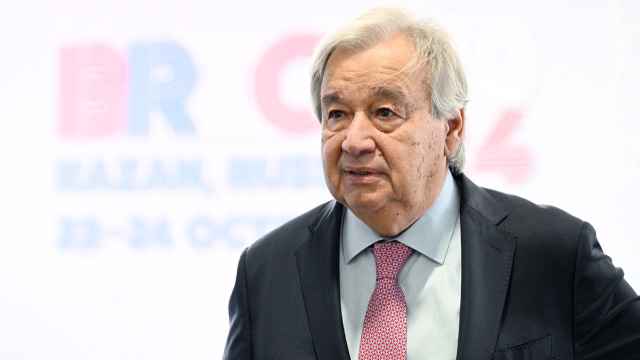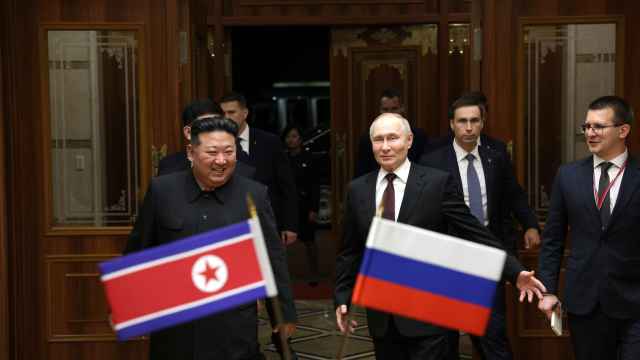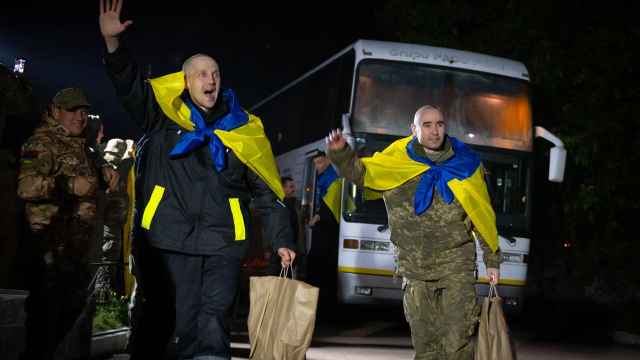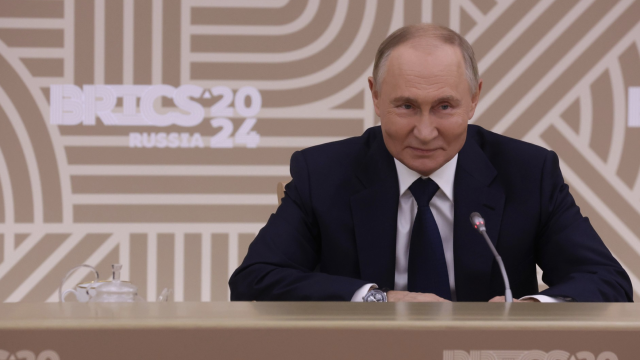The majority of Russian citizens — especially young people — make no secret that being sent to the Ukrainian front is not part of their plans.
Yet how can it be possible that the army has no shortage of contract soldiers, with new recruits arriving faster than soldiers are being killed?
The answer lies in Russia's social divide: a complacent majority that supports the war from a distance and a highly belligerent minority willing to fight it.
The state-owned pollster VTsIOM published the results of a poll asking the public who they consider the real Russian “heroes of our time.” They had clearly planned to release a report that would fit with the militaristic mania of Russia Day. But the results they got were likely not what they had in mind.
The poll began innocuously enough. Respondents were first asked whether they agreed that real heroes of Russia include those who work “daily for the good of society,” not only serving on the battlefield. Naturally, people agreed — especially the young. Among those under 25, 99% supported the supposition that one can heroically “defend the country” without weapons; other age groups were not far behind.
The second question was meant to demonstrate the unwavering patriotism of the Russian public, asking whether they would be willing to “serve the Motherland” in the event of natural disasters or war.
Five options were offered, including “taking part in the armed defense of the country.” But only 23% chose the “armed defense” option, which ended up fourth out of five options. Volunteering and working in other sectors and spreading patriotic messages — options that involved little upheaval to their ordinary lives — were more popular.
The only option less popular than going off to fight was providing financial support. Respondents seem to know perfectly well that in a crisis, the authorities would seize their money without asking, and even those who promised to help with their own rubles likely did so just to appease what they view as VTsIOM's officialdom.
Even more striking is the fact that those least likely to volunteer to fight were the young. Among those under 33, this option firmly occupies last place, selected by just 17-20% of respondents. The most eager to take up arms were those aged 50-60. But with only 33% saying yes, that hardly indicates a robust fighting spirit.
To be fair, the poll numbers may be slightly skewed as they represent a holistic view of the Russian public. Men across all age groups are more likely to express a willingness for combat than women. Since men comprise the vast majority of Russian forces, their responses carry particular weight. Yet even among men, volunteering and the vague "professional assistance" ranked highest.
One must remember that war is not an abstraction for Russians today; every Russian has, in one way or another, already considered the possibility of being sent to the front lines. These answers, therefore, merit serious attention, as they were not given without due thought and consideration. The poll seems especially worrying for the Kremlin, considering that some respondents likely feigned belligerence just to curry favor with the authorities.
Some analysts — including myself — recently thought Putin would be unable to find enough conscripts to cover losses this year, and that by late 2025, he would be forced to choose between a forced draft and a ceasefire.
Unfortunately, the data paints a different picture.
The verified list of dead Russian soldiers maintained by Mediazona and the BBC already exceeds 115,000. About 5,000 names are added each month.
The actual number of deaths is widely estimated at roughly double that. Washington's Center for Strategic and International Studies (CSIS), for example, puts Russian fatalities at 250,000.
Estimating all irreversible losses — killed plus wounded who never return to duty — is harder. Ukrainian Commander-in-Chief Oleksandr Syrskyi claimed Russia suffered 32,000 irreversible losses in June alone, though the country’s incentive to overreport Russian losses likely means that the real number is slightly lower.
Meanwhile, official figures suggested Russia added 190,000 volunteer and contract soldiers in the first five months of 2025. If these figures (which suspiciously match last year’s reports and this year’s plans) are correct, monthly inflows exceed losses by roughly 10,000. Official numbers may be inflated, but front-line Russian forces are at least not shrinking—and most likely growing.
The question of how long that growth can last remains.
Irreversible Russian losses over three and a half years of war are estimated to range between 500,000 and 1 million. Putin says about 700,000 Russians are currently fighting. His goal is to increase the number of active servicemen to 1.5 million.
To determine where Russia has found its soldiers so far, we can look at statistics for the fallen. Only three out of every 10,000 men aged 20-61 in Moscow died due to the war. But the same demographic in the republic of Tyva is 40 times more likely to die.
Yes, Tyva faces specific problems that make it a hotspot for military recruitment. As well as being one of the poorest of Russia, its high crime rate means there are many former convicts to recruit voluntarily or coercively.
Even regions without these problems have higher death rates than Moscow. Many have demographics or regions that are targeted to supply troops en masse.
This may be more than enough to sustain the Kremlin’s war. There are no signs that the regime is panicking about recruitment. Even while sign-on bonuses have not only stopped rising, but have even started falling in some regions.
Measures such as allowing 18-year-olds to serve and scrapping the upper age limit for first-time recruits mostly streamline recruitment rather than greatly widen the pool. That pool is far from huge, but it is clearly sufficient for now.
The Kremlin might be able to create its army of 1.5 million. But recruiting and deploying more than that is likely unrealistic, as people do not want to enlist. But the number that may conceivably be enough to continue fighting well into next year.
There remains a faint hope that Putin is being deceived by his courtiers’ flattering and that Russia, in fact, has no reserves. Yet this squares poorly with the evidence. Putin's refusal to make even minimal concessions in negotiations and his clear expectation that Russia will gain significant Ukrainian territory in its summer-autumn offensive show that he does not consider a manpower shortage a current problem.
An unwritten contract is in force with the majority of Russians. The majority can sleep at night without worrying about being mobilized and deployed to the front lines. In return, they do not hinder Putin’s war effort and, like VTsIOM’s suggestions, remain ever ready to help in other ways. They will do anything to continue the war, apart from putting themselves at risk.
A Message from The Moscow Times:
Dear readers,
We are facing unprecedented challenges. Russia's Prosecutor General's Office has designated The Moscow Times as an "undesirable" organization, criminalizing our work and putting our staff at risk of prosecution. This follows our earlier unjust labeling as a "foreign agent."
These actions are direct attempts to silence independent journalism in Russia. The authorities claim our work "discredits the decisions of the Russian leadership." We see things differently: we strive to provide accurate, unbiased reporting on Russia.
We, the journalists of The Moscow Times, refuse to be silenced. But to continue our work, we need your help.
Your support, no matter how small, makes a world of difference. If you can, please support us monthly starting from just $2. It's quick to set up, and every contribution makes a significant impact.
By supporting The Moscow Times, you're defending open, independent journalism in the face of repression. Thank you for standing with us.
Remind me later.


